Every company has a CEO and every CEO has their own particular style. Some are self-made, while others have leveraged a bit of family clout to get their start. Some promote themselves, some promote their companies, while others (both intentionally and unintentionally) promote both. But what if that CEO, or their style, eclipses that of their company? What if the CEO becomes or IS the company? Does it change the way both are viewed in eye of the general public? Does it change the way corporations have to manage their operations AND their CEO’s?
Here are 12 icons of business who have shaped their companies and careers above and beyond the competition. I’ve paired them together, with the excellent help of Alan Berkson (@berkson0) of the Intelligist Group to highlight both common traits and areas where they may differ. For your consideration…

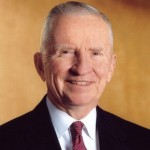 Martha Stewart and Ross Perot: Both iconoclasts whose brand is their name. Both were willing to push themselves into the spotlight, creating businesses through the sheer force of their own personal will.
Martha Stewart and Ross Perot: Both iconoclasts whose brand is their name. Both were willing to push themselves into the spotlight, creating businesses through the sheer force of their own personal will.
Both were also never willing to say “quit” – despite the uphill battles they fought. Ultimately, however, this trait – and their larger than life egos – became part of their undoing. Both became victims of their own success and the benefits/curses it brought in limiting their future activities.
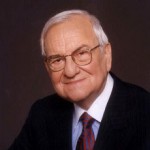
 Lee Iacocca and Louis Gerstner: Two “hired guns” brought in to fix a business because they had celebrity status. Lee had earned his stripes helping to create iconic cars at Ford (both the Mustang and, ironically, the Pinto) – literally creating the then-modern day powerhouse Ford brand.
Lee Iacocca and Louis Gerstner: Two “hired guns” brought in to fix a business because they had celebrity status. Lee had earned his stripes helping to create iconic cars at Ford (both the Mustang and, ironically, the Pinto) – literally creating the then-modern day powerhouse Ford brand.
Gerstner, on the other hand had a proven track record at American Express, McKinsey & Company and RJR Nabisco before being brought in to right IBM’s sinking ship. Both were willing to put their names on the line in the public light to take a broken business and turn it into something of value. The difference was that Lee rebuilt a better version of Chrysler while Gerstner built a new version of IBM.

 Oprah Winfrey and Larry Flynt: Yes, they actually pair well in several ways. Both have a “you either love them or hate them” persona and both have been driven by humanitarian/freedom issues. For Oprah, her history of giving is unique, as is her humanitarian mission through the “O” network, which has become more important to her than its entertainment value. Larry, on the other hand (despite a somewhat sleezy demeanor) has a passion for free-speech, and a willingness to push the buttons that drive others to action. Is porn his passion? No – it’s freedom of speech and the press for all of us. You may love him, or hate him, but it’s unlikely you haven’t benefited from his controversy in some way.
Oprah Winfrey and Larry Flynt: Yes, they actually pair well in several ways. Both have a “you either love them or hate them” persona and both have been driven by humanitarian/freedom issues. For Oprah, her history of giving is unique, as is her humanitarian mission through the “O” network, which has become more important to her than its entertainment value. Larry, on the other hand (despite a somewhat sleezy demeanor) has a passion for free-speech, and a willingness to push the buttons that drive others to action. Is porn his passion? No – it’s freedom of speech and the press for all of us. You may love him, or hate him, but it’s unlikely you haven’t benefited from his controversy in some way.

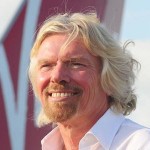 Donald Trump and Richard Branson: Two men who clearly live larger than life. They live for both themselves and the celebrity that they create for themselves and their brands (both of which will survive long after their departure). People often underestimate the extent of the Trump empire, but it is vast, well managed and the man knows how to delegate.
Donald Trump and Richard Branson: Two men who clearly live larger than life. They live for both themselves and the celebrity that they create for themselves and their brands (both of which will survive long after their departure). People often underestimate the extent of the Trump empire, but it is vast, well managed and the man knows how to delegate.
Branson is similar – the ultimate man of both business and delegation whose world-renowned exploits only enhance his Virgin brand (Virgin, by the way, became the name of his first record label because he and his partners felt they were “business virgins” – a brand he has built through Virgin Records, Virgin Atlantic Airways, Virgin Mobile, Virgin Trains, Virgin Express, Virgin Nigeria, Virgin America, Virgin Cola, Virgin Vodka, Virgin Galactic, Virgin Fuels and Virgin Media).

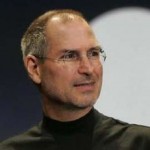 Larry Ellison and Steve Jobs: Both are their company and their company is them. But while Larry also lives outside of his company, Steve has become one with his company. In contrast to Steve, Larry lacks the universal, almost cultish, appeal that Steve has attained.
Larry Ellison and Steve Jobs: Both are their company and their company is them. But while Larry also lives outside of his company, Steve has become one with his company. In contrast to Steve, Larry lacks the universal, almost cultish, appeal that Steve has attained.
Could Oracle be where they are today without Larry? No. Could they survive without him? Probably better than Apple due to his strong promotion of others within the Oracle empire. His delegation is public and accepted – Steve’s is not – his fans, and Apple fans want him – Steve is Apple. Want proof? When Steve checked out of Apple, the company checked out. Apple has seen what life without Jobs can be like, and it wasn’t pretty. Unfortunately, this is a issue that they may well face in the not to distant future.
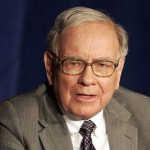
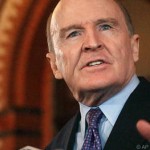 Warren Buffet and Jack Welch: Two men driven by principle and discipline. For Warren (the ultimate Boy Scout?) there is a “Buffet Way”. For Jack, there is the “GE way”. Both ways have a common trait – We’re either #1 or we’re out.
Warren Buffet and Jack Welch: Two men driven by principle and discipline. For Warren (the ultimate Boy Scout?) there is a “Buffet Way”. For Jack, there is the “GE way”. Both ways have a common trait – We’re either #1 or we’re out.
Both grew their empires through investing in other businesses with very strict criteria – neither take risks and they both tend to view the world from a “risk does not equal reward” perspective.
So how does your CEO fit into this mold, or are you a CEO that see’s yourself in one of these individuals? Either way, it makes for an interesting time around the board-room table.